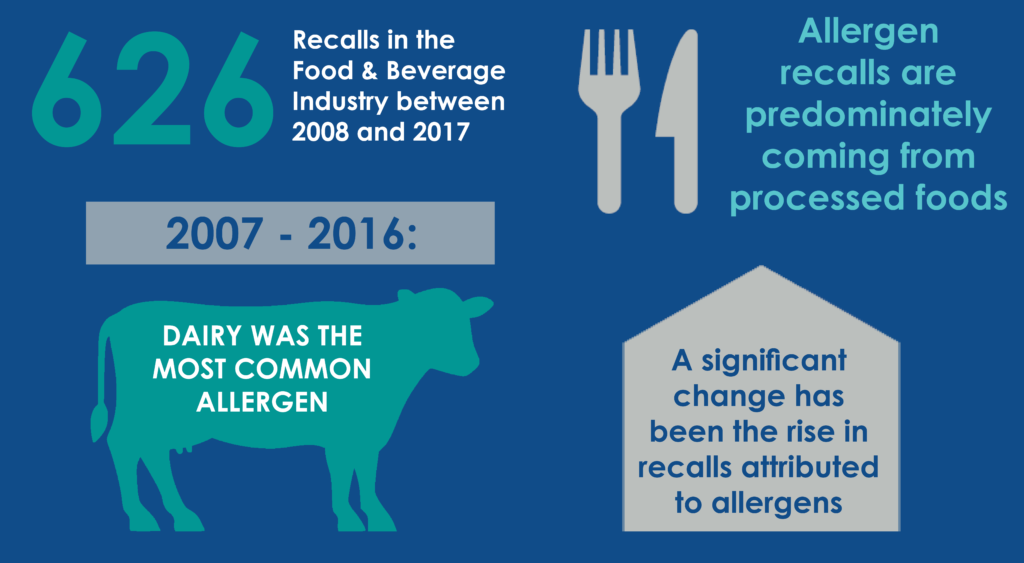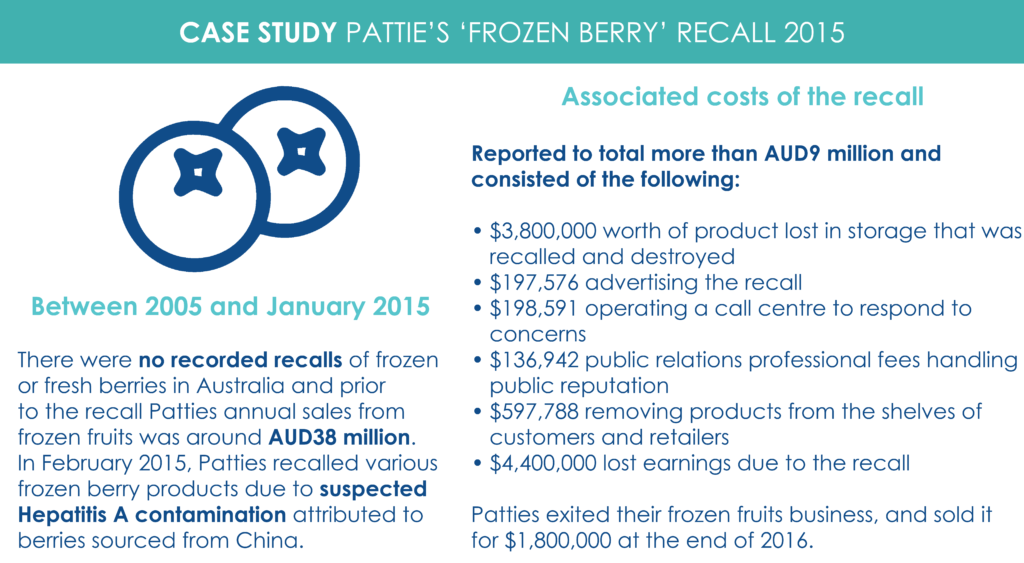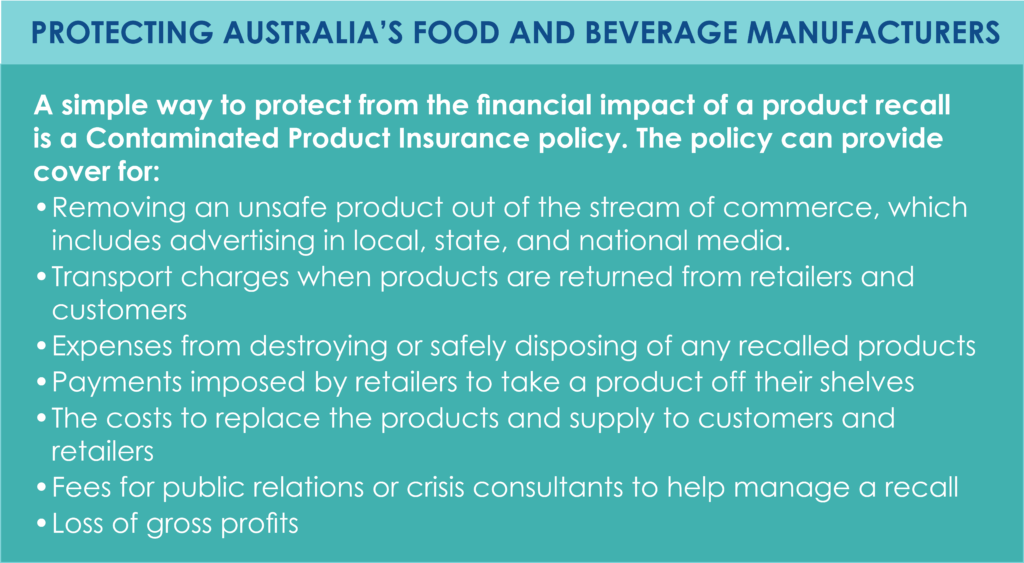In fact, there were a total of 626 recalls between 2008 and 2017. These affected nearly every type of food industry including dairy, meat, vegetables, fruits, seafood, bottled water– even beer.
Recalls cause significant impact on a business as costs can run into the millions. This can even occur from products with a reasonably low turnover.
The reality is that recalls can be expensive. And the two major issues companies face after recalls are a damaged reputation followed by a hit to the bottom line.

What causes recalls?
There are a wide range of reasons behind recalls including microbiological contamination, foreign matter, biotoxins, chemical contaminants, mislabeling, undeclared allergens, and the presence of disease. Commonly, these are out of the control of the manufacturer.
Food Standards Australia New Zealand reports significant growth in recalls as a result of undeclared allergens like peanuts, milk, eggs, fish, shellfish, wheat, tree nuts and soybeans. In recent years, the frequency has tripled from 10 declared recalls in 2008 to 34 in 2017, accounting for 48% of all recalls in the last three years.
These claims often arise from contaminated ingredients being supplied to manufacturers, only to be discovered when a third party has tested the products or someone has fallen ill.
What allergens are causing recalls? From 2007 to 2016 Food Standards Australia New Zealand report dairy was the most common cause, followed by peanuts, wheat/gluten and finally tree nuts.

Real average: 63 recalls per year
Over the past 10 years, there have been 626 recalls of food and beverage products in Australia – making the average about 63 per year. Over the past three years, three quarters of recalls were caused by undeclared allergens, microbial contamination and foreign matter.
Undeclared allergens are risky business
A significant change has been the rise in recalls attributed to allergens, with the annual number rising from 10 in 2008 to 34 in 2017. Alarmingly, nearly half of all recalls were attributed to allergens in the last three years alone.
What allergens are causing recalls?
From 2007 to 2016 dairy was the most common cause, followed by peanuts, wheat/gluten and finally tree nuts.
Allergen recalls are predominately coming from processed foods, confectionary and baked foods.
This is no surprise considering the large number of ingredients in processed products. The more ingredients, the harder it is to ensure they are free from potential allergens.
Contamination is the next threat
Microbiological contamination is the second largest cause of recalls. The most common of these contaminations are Listeria monocytogenes, Salmonella and Escherichia coli (E.coli) – combined these account for 81% of all microbiological recalls.
Given the right conditions, millions of bacteria can grow on common, everyday foods. These conditions are:
- Time – a single bacterium can multiply to over two million in just seven hours
- Warmth – the ‘danger zone’ temperatures at which bacteria grow best are between 5ºC and 63ºC
- Food – like any other living things, germs need food to grow. High-risk foods that bacteria love best include dairy products, meat, poultry, fish and shellfish
- Water – bacteria need moisture to grow. This includes moisture in ‘wet’ foods such as juicy meats, sandwich fillings, soups, sauces and dressings.



Recent Comments